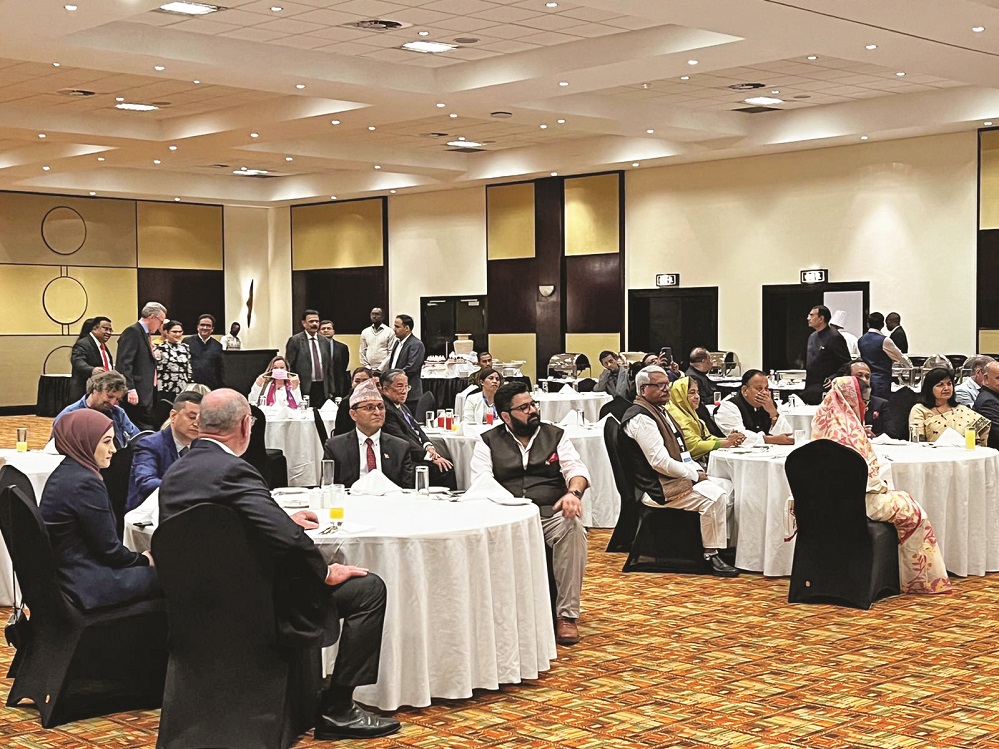KIGALI (Rwanda): Participating in a workshop on the Rights of the Child on the theme “Child-friendly Parliaments: The case for stronger parliamentary action in support of child rights” at the 145th Assembly of the Inter-Parliamentary Union (IPU) on Friday, Indian parliamentarian Kartikeya Sharma said that it is crucial to focus on vulnerable children.
The young MP said, “Children constitute the principal asset of any country. Children’s development is very important for the overall development of society, and the best way to develop national human resources is to take care of children under the age of 18 as they constitute 30 percent of India’s population. They represent not only India’s future but are integral to securing India’s present The Constitution of India obliges the government to make necessary provisions to advance the rights and wellbeing of children.”
“Moreover the recognition of the need for promoting greater child responsiveness in India’s policies is also reflected in our National Policy for Children (2013), the National Plan of Action for Children (2016) and the New Education Policy (2020),” he added.
Talking about protection of children, he stated that, “It is crucial for us to focus on vulnerable children such as street children, orphans, child labor, migrant children, etc. in our policy and financial statements while reviewing our child development schemes. The catastrophic impact of COVID-19 has further increased the risks and vulnerabilities of children and, therefore, corresponding welfare measures would be crucial along with adequate allocation and increase in the expenditure on children.”
He stated that India upholds a large range of international instruments and decisions pertaining to the rights of all children to protection, security, and dignity. “We are party to the UN Convention on the Rights of the Child (UNCRC) and the Convention on the Elimination of All Forms of Discrimination Against Women (CEDAW). We even ratified the International Labour Organization (LO) Convention No. 182 on the Worst Forms of Child Labour, 1999, and are taking effective measures to secure the prohibition and elimination of the worst forms of child labour in the country,” he further added.
It is widely acknowledged that investing in children contributes significantly towards inclusive and sustainable human development. Hence, our progress in achieving the Sustainable Development Goals (SDGs) requires a high degree of child involvement in our policies and programmes.
“The Indian Parliament has played a vital role in enacting several laws for the welfare and the fuller development of children. Child Labour (Prohibition and Regulation) Amendment Act, 2016, the Juvenile Justice (Care and Protection of Children) Act 2015, the Protection of Children from Sexual Offences Act 2012, the Right of Children to Free and Compulsory Education Act, 2009, the Prohibition of Child Marriage Act 2006 the Commission for Protection of Child Rights Act 2005, and Pre-Conception and Pre-Natal Diagnostic Techniques (PCPNDT) Act 1994 are some of the major initiatives of Parliament of India for protecting children’s interests and benefits,” he said while talking about laws for protection of children in India.
“Further our parliamentarians have been taking up problems confronted by children, especially those relating to their health, education, nutrition, recreation, and protection from exploitation and abuse, through questions and other procedural devices for drawing the attention of the Government.”
While talking about the importance of the importance of legislatures as advocates for children, he said, “Legislatures are one of the key political arenas where elected officials can effectively advocate for a greater, more efficient, and equitable allocation of resources to advance children’s rights. They play a crucial role in preparing a legal and fiscal framework focusing on the differential needs of children. Further deliberations in Parliament and various Parliamentary Committees help in incorporating children’s needs into government policies, programmes, intervention and as an important strategy for mainstreaming child welfare in the development process.”
Take care of children to develop national human resources: MP Kartikeya Sharma
- Advertisement -

